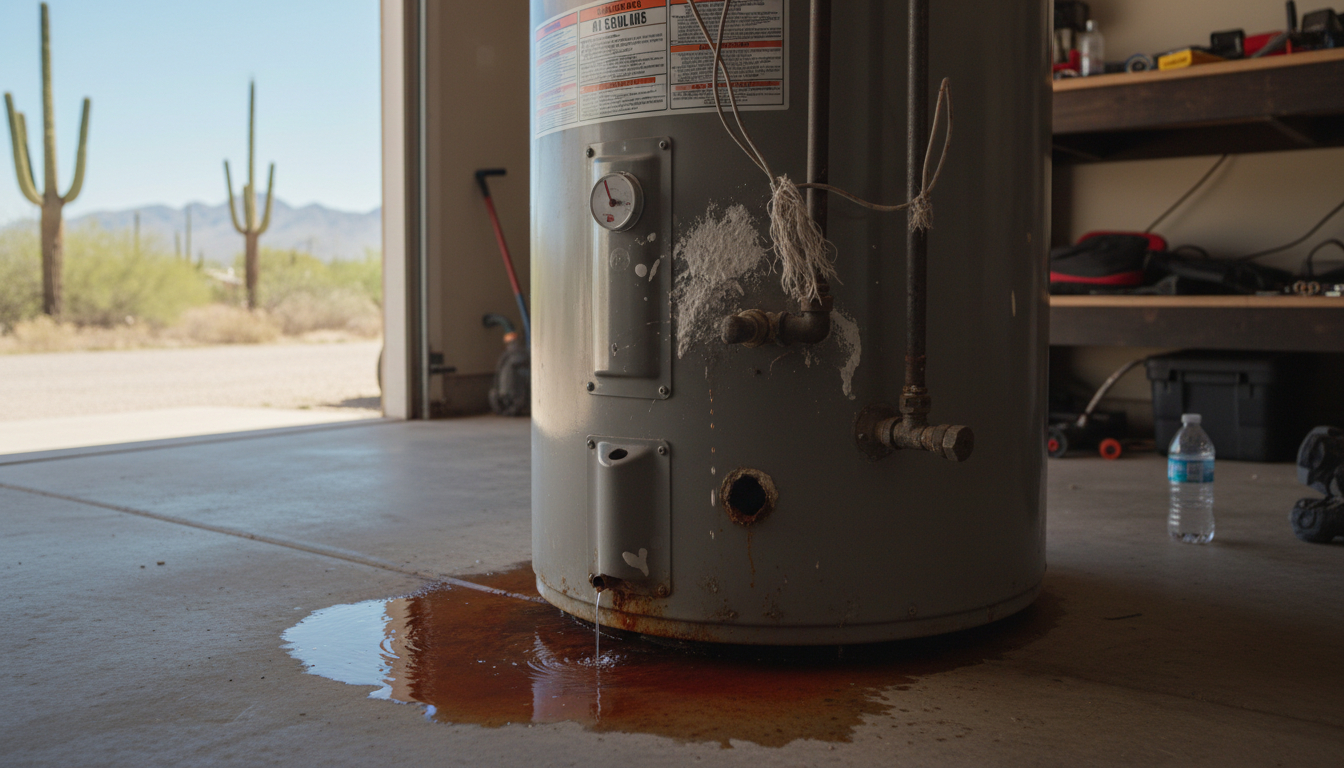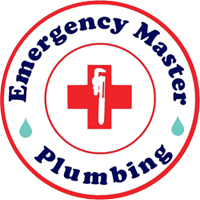

Living in Surprise, Arizona, means dealing with scorching summers and hard water that can take a toll on your home’s plumbing systems. Your water heater works tirelessly to provide hot water for showers, dishwashing, and laundry, but like any appliance, it has a lifespan and can develop problems over time. Ignoring early warning signs can lead to bigger issues, such as water damage, higher utility bills, or even safety hazards like scalding or gas leaks.
In this guide, we’ll explore the most common indicators that your water heater needs professional attention. Recognizing these signs early allows you to address them before they escalate, saving you time, money, and stress. Whether you have a traditional tank model or a modern tankless unit, staying proactive is key in our desert climate, where mineral buildup from hard water accelerates wear and tear. Let’s dive into the top signs and what you can do about them.
How Water Heaters Work in Arizona’s Climate
Before identifying problems, it’s helpful to understand your water heater’s role. Most homes in Surprise use gas or electric tank-style heaters that store 40 to 80 gallons of water, heating it to 120-140°F via a burner or heating elements. Tankless models heat water on demand, which can be more efficient in our mild winters but still face challenges from Arizona’s hard water, rich in calcium and magnesium.
These minerals cause sediment to accumulate at the bottom of the tank, reducing efficiency and lifespan. In Surprise, where temperatures can exceed 110°F in summer, your heater might cycle more frequently, putting extra strain on components. Regular maintenance, like annual flushing, helps, but when issues arise, professional diagnosis ensures safe, effective repairs. Now, let’s look at the key signs that it’s time to call in experts.
Top Signs Your Water Heater Needs Repair
Spotting trouble early prevents minor glitches from turning into costly replacements. Here are the most reliable indicators, based on common experiences in Surprise households.
1. No Hot Water or Sudden Shutdowns
One of the most frustrating issues is turning on the faucet and getting only cold water. This could stem from a tripped circuit breaker (for electric models), a faulty thermostat, or a burned-out heating element. In gas heaters, a malfunctioning pilot light or thermocouple might be the culprit.
In Surprise’s variable weather, where mornings can be chilly, this sign disrupts daily routines. If resetting the breaker doesn’t help or the problem recurs, avoid tampering with gas lines—risking carbon monoxide exposure. Professionals can test components quickly, often restoring hot water the same day. Delaying repair might lead to complete failure, forcing a full replacement that costs $1,000 or more.
2. Inconsistent Water Temperature
If your shower starts hot but turns lukewarm mid-way, or the temperature fluctuates unpredictably, sediment buildup is likely insulating the burner or elements, making it hard to maintain consistent heat. This is especially common in Arizona due to our hard water, which accelerates scaling inside the tank.
Fluctuations not only annoy but can waste energy as the heater overworks. In a family home, this might mean scalding risks for kids or elders. A technician can flush the system and check the dip tube, which directs cold water into the tank. Addressing this promptly improves efficiency and safety, potentially lowering your energy bills by 10-20%.
3. Strange Noises from the Unit
Hearing popping, rumbling, or banging from your water heater? These sounds often come from sediment boiling against the tank walls, like rocks in a dryer. In Surprise, where water hardness exceeds 15 grains per gallon, this buildup happens faster, causing the heater to strain and vibrate.
Ignoring noises can crack the tank, leading to leaks. Electric models might hum from failing elements, while gas ones could indicate burner issues. Turn off the unit if sounds intensify, and call for an inspection. Repairs like sediment removal are straightforward and extend your heater’s life by years.
4. Visible Leaks or Drips
Water pooling around the base of your heater is a red flag. It might be a loose pressure relief valve, corroded fittings, or a cracked tank—common in older units exposed to Arizona’s mineral-heavy water.
Even small leaks can cause major damage in a utility room, especially if undetected. Shut off the water supply and power immediately to prevent flooding or electrical hazards. In Surprise, where humidity is low but water damage still promotes mold, pros use tools like moisture meters to pinpoint and fix leaks, often preventing thousands in repairs.
5. Rusty or Discolored Water
If your tap water runs brown, rusty, or murky, corrosion inside the tank or pipes could be releasing sediment. Anode rods, designed to attract rust, might have worn out, allowing the tank to deteriorate.
This not only stains fixtures but can clog appliances like your washing machine. In our desert environment, low water volume exacerbates the issue. Test by running hot water into a white bucket—if discoloration persists, avoid using it for drinking or bathing. Experts replace anode rods or reline tanks, restoring clear water and protecting your plumbing.
6. Rising Energy Bills Without Explanation
Noticed your utility costs spiking? A failing water heater works harder to heat water, consuming more gas or electricity. Sediment insulation or a degraded dip tube forces longer run times, adding $50-100 monthly in Surprise summers when AC already strains your budget.
Track your bills—if hot water use hasn’t increased, the heater is the likely culprit. Energy-efficient repairs, like insulating the tank, can reverse this. Local technicians familiar with Arizona’s climate optimize for our conditions, helping you qualify for rebates on efficient upgrades.
7. Foul Odors from Hot Water
A rotten egg smell when running hot water often signals bacteria growth in the tank, thriving in stagnant, warm conditions. Sulfur-reducing bacteria react with the anode rod, producing hydrogen sulfide gas.
In Surprise, infrequent use during hot months worsens this. The fix involves shocking the system with a chlorine solution and replacing the rod, but DIY attempts risk contamination. Professionals ensure safe treatment, eliminating odors and preventing health issues like skin irritation.
8. Age and Wear: Over 10 Years Old
Water heaters typically last 8-12 years, but Arizona’s hard water shortens this to 7-10. If yours is approaching a decade without recent maintenance, efficiency drops, and breakdown risks rise.
Check the manufacture date on the label. Even without symptoms, proactive inspection prevents surprises. In Surprise, upgrading to a high-recovery model suited for hard water pays off long-term, with warranties up to 12 years.
9. Pilot Light Problems in Gas Models
For gas water heaters, a yellow or sooty flame instead of blue, or frequent extinguishing, points to improper combustion. This could be dirt buildup or a faulty gas valve, risking incomplete burning and carbon monoxide buildup.
Arizona’s dust can clog vents, exacerbating issues. Never relight manually without checking for leaks—use a CO detector as backup. Certified techs clean and adjust burners safely, ensuring compliance with local codes.
10. Reduced Hot Water Pressure
Low flow from showers or faucets, despite good cold pressure, indicates a clogged inlet valve or sediment blocking the heater. Tankless units might have scale in heat exchangers.
In our low-humidity climate, this feels more noticeable during peak use. Cleaning or descaling restores pressure, but pros use acid flushes without damaging components. This simple repair enhances comfort without major plumbing overhauls.
Why Skip DIY and Call Professionals
Tackling water heater repairs yourself might seem cost-saving, but it often leads to complications. Gas models involve hazardous fuels, and electrical ones risk shocks. In Surprise, where codes require licensed plumbers for permits, improper fixes void warranties and invite fines.
Beyond safety, pros diagnose root causes with tools like cameras and pressure gauges, preventing repeat issues. They also spot related problems, like pipe corrosion from hard water, offering holistic solutions.
Benefits of Local Water Heater Services in Surprise, AZ
Choosing technicians who know Surprise’s unique challenges—hard water, extreme heat—ensures tailored service. Local experts arrive quickly, understand permit processes, and recommend models resilient to our environment, like those with enhanced anode protection.
They provide warranties on parts and labor, plus tips for maintenance amid Arizona’s conditions. For families relying on reliable hot water, this peace of mind is invaluable.
Preventive Tips to Extend Your Water Heater’s Life
While repairs are sometimes unavoidable, prevention is easier:
-
Flush the tank annually to remove sediment.
-
Insulate pipes and the tank to retain heat.
-
Install a water softener to combat mineral buildup.
-
Set the thermostat to 120°F for safety and efficiency.
-
Schedule bi-annual inspections, especially before summer.
These steps, adapted for Surprise’s climate, can add years to your unit and cut energy use.
In conclusion, heeding these top signs of water heater trouble keeps your Surprise home running smoothly. From no hot water to leaks and noises, early action prevents disasters. For reliable, expert repair, trust Emergency Master Plumbing & Air. With years of experience serving the area, their team diagnoses and fixes issues efficiently. Contact them today at 623-584-4706 for prompt service and lasting results.
